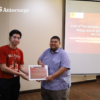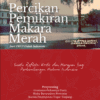Commercial contracts made by parties of different nationalities must be carefully crafted to formalize each party’s obligations, including ways to resolve any controversy or disagreements. Especially in cases where differences cannot be settled amicably, a clear roadmap to resolve disputes must be clearly stipulated in the contract to prevent new problems from occurring.
The initial questions that may arise in a contractual dispute are where the parties must refer their case and what law must be applied to solve their contentious issues. Choice of forum and choice of law are the answers to such questions. They dictate the jurisdiction over the disputes and the applicable substantive law for interpreting the contract. Choice of forum and choice of law are interrelated matters that play a pivotal role as a law compass for resolving disputes arising from a contract.
Choice of Forum and Choice of Law under Indonesian Law
The freedom of contract principle is honored in Indonesia as outlined in the Indonesian Civil Code and Civil Procedures. It allows parties to a contract to not only freely lay down the substance of their agreements but also to designate a preferred dispute settlement forum as well as the governing law of the contract. Having said that, Indonesian law does not explicitly recognize the choice of foreign courts, although, in practice, Indonesian judges respect such choice by denying jurisdiction in cases where parties to a contract choose a foreign court as their dispute settlement forum.
With regard to choice of law, the application of foreign law in Indonesian courts is unprecedented. While interpretation of contract must be done in alignment with the governing law chosen by the parties, in some cases, Indonesian judges do not apply the substantive law agreed upon by the parties. There are also cases where the judges dismiss the claims on the grounds of lacking jurisdiction due to the choice of foreign law. That happens likely because Indonesian judges are not familiar with private international law practice, plus Indonesian law is silent on the application of foreign law in Indonesian courts.
For the above reasons, making the right combination between the choice of forum and choice of law in a contract with Indonesian parties or about Indonesian objects could be quite delicate. It is crucial to harmoniously combine said choices so that it would not cause new complications in the process of resolving a dispute.
Arbitration vs Litigation in Court, and the Governing Law
The most common option for resolving contractual disputes where parties fail to reach an amicable settlement is either arbitration or court litigation. Both arbitration and court litigation have their own advantages and disadvantages, which must be carefully considered prior to making a combination of choice of forum and choice of law.
In contracts relating to Indonesia with foreign governing law, arbitration is likely the more suitable choice of forum. The reason is that in arbitration, each party has the right to choose an arbitrator to form a panel or a single arbitrator who would preside over the tribunal. The liberty of appointing arbitrators gives more possibility (if not certainty) for the tribunal to apply the governing law of the contract in examining and deciding the case. As such, the parties can select the members of the tribunal who are familiar with the governing law of the contract to ensure the tribunal is conducted in alignment with the correct substantive law.
On the contrary, if the parties choose Indonesian law as the governing law of the contract, the choice of forum is more flexible, either arbitration or court litigation. Either forum can be compatible with Indonesian law for the following reasons:
- In an arbitration tribunal, either in Indonesia or overseas, the parties are free to appoint arbitrators who are familiar with Indonesian law. Hence, the application of Indonesian law as the substantive law in examining disputes is not a problem.
- The application of Indonesian law in Indonesian courts is not an issue.
- If the parties choose foreign courts as the choice of forum, applying Indonesian law is still possible subject to existing precedents of the application of foreign law in the chosen court.
Conclusion
In light of the above discussion, parties to a contract relating to Indonesia must be cautious in making a choice of forum and choice of law as they determine whether disputes can be resolved effectively and efficiently or end up disastrous.





